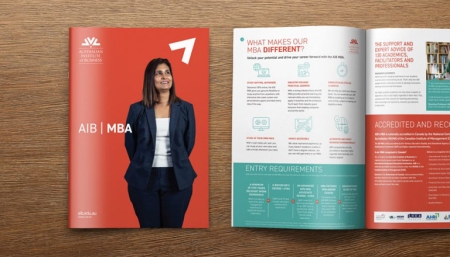How to get promoted at every level

Whether you’ve just started your first job or you have your eye on the big office, the ambition to advance your career never quite leaves you. While the skills and experience required for promotion will differ at each level, there are a number of practices and qualities that will always reflect positively on you. Build and consolidate them as you progress throughout your career to position yourself for promotion at each level.
1. Choose your industry wisely
Jobs in high growth sectors are more likely to see you promoted faster. New industries and dynamic sectors mean more change and more opportunity to spread your wings. That doesn’t always mean searching out something new, but it does mean taking a step back from the role you’re going for and looking at the industry as a whole to assess its prospects.
No matter what your qualifications, there are always a range of options available. Whether you’re a tradesperson specialising in the latest technology or a business development manager working for a disruptor, the road less travelled may be the one that gets you to your destination the fastest.
2. Exude positivity
A person with an optimistic attitude inspires those who surround them. They are more productive, are greater problem solvers, and they influence others to try new things and take more risks. A positive mindset is even a predictor of good mental health.
If you’re just starting out, an upbeat and positive attitude will send the message to your leaders that you’re warm, eager to learn and a positive influence on others. If you’re a manager, your optimism will engage your team and build trust amongst them. Either way, that translates to more productivity and influence.
3. Build and maintain workplace relationships
No matter how hard you work, in most organisations and industries, if your communication skills aren’t up to scratch and you’re not a team player, it can be difficult to secure promotions. Regardless of your seniority, collaboration within your team, department, organisation and external stakeholders are commonly required. Therefore, it’s important to invest time in building positive workplace relationships. In addition to the functional and social benefits of these relationships, they signify to your leaders that you have excellent communication skills and work well with others, ticking two of the necessary boxes for your next promotion.
4. Prioritise ongoing learning
No matter how highly qualified you are, there are always opportunities to keep learning. Not only will those extra qualifications and courses look good on your resume, they’re an excellent way to demonstrate to employers that you’re prepared to put in additional effort in order to deliver results. Companies are usually happy to invest in employees who want to learn, as it demonstrates loyalty and drive. When the promotion opportunity does come along, your up-to-date knowledge and skills will put you at the front of the pack.
5. Express your interest
In the business world, the best things do not come to those who wait. Many people make the mistake of deciding that they’re not yet ready for a promotion and hanging back while their peers leapfrog them. It sounds obvious, but if you don’t ask or apply for a promotion, it’s unlikely that you’ll get one.
Even if you are turned down because you’re not quite ready yet, it signals your ambition and willingness to learn, which can open up a conversation about what you need to demonstrate you’re ready. Pursue training opportunities in those areas to strengthen your next application. A good leader will always support the career trajectory of their staff once they know who wants to go that extra mile.
6. Be humble
While having a positive attitude and the confidence to put yourself out there goes a long way, be wary of letting it take you too far. Be prepared to buckle down for a while, put in the hours and be a team player before asking for a promotion. Share your accomplishments with the team and prove your value, but be wary of always singing your own praises. If the perceptions others have of you do not align with those you have of yourself, you won’t be first in line for a promotion.
Share your experience
Are you in a leadership or executive position? What have been the qualities, skills and actions that have contributed to your career success and progression?
Explore more articles in our main blog page.
This article was written by Tanya Ashworth-Keppel on behalf of the Australian Institute of Business. All opinions are that of the writer and do not necessarily reflect the opinion of AIB. The following sources were used to compile this article: Fast Company, Copyblogger and Entrepreneur.




